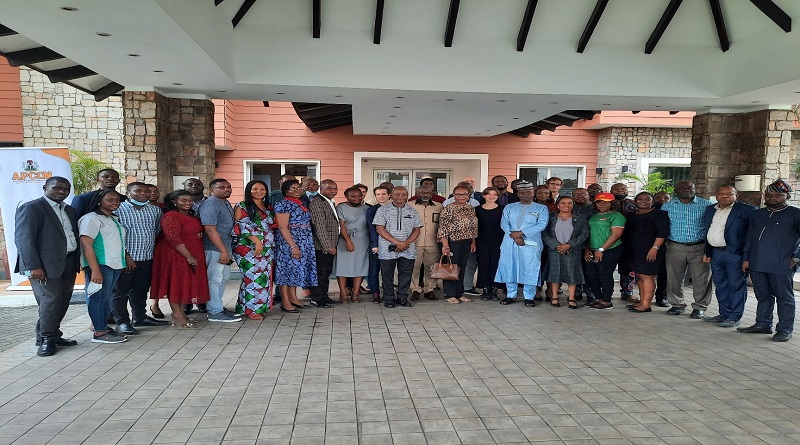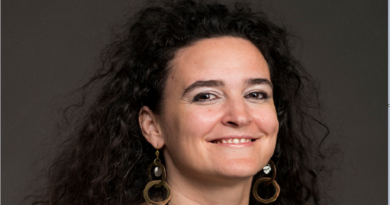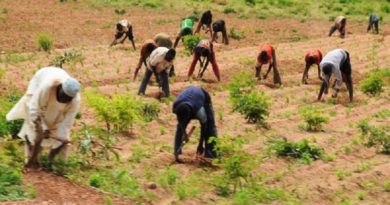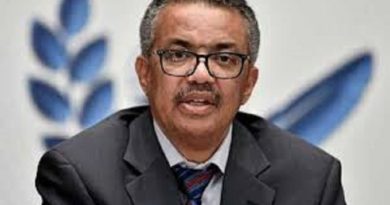Stakeholders back E-waste Compensation pilot project in Nigeria
Photo caption: Participants in a group photograph at the first stakeholders workshop held in Lagos on Wednesday 10 November 2021.
Relevant stakeholders’ in the E-waste sector including government Ministries and agencies both at federal and state government levels, non-governmental organisations, academia and recyclers among others have put their weight behind the E-waste Compensation as an International Financing Mechanism in Nigeria (EcoN) pilot project.
The EcoN project which aims to expand a business model known as ‘waste compensation’ to Li-ion batteries and flat panel displays allowing the support of environmentally-friendly collection and treatment in Nigeria and beyond. It also aims at effective pilot and demonstration of the mechanisms for batteries and monitors that could be scaled as a funding mechanism in many other countries and can be used as a blueprint for developing local policies and financing instruments in Nigeria.
At a day long first Stakeholder’s workshop on the project: E-waste Compensation as an International Financing Mechanism in Nigeria (EcoN) held in Lagos on 10th November 2021 organised by Sustainable Research and Action for Environmental Development (SRADev Nigeria) under the auspices of the EcoN project team and being funded by the German PREVENT Waste Alliance and jointly implemented by Oeko-Institut e.V. (Germany), Closing the Loop (Netherlands), SRADev (Nigeria), Hinckley Group (Nigeria) and Verde Impacto (Nigeria), stakeholders were briefed on the current state, initial outcomes of feasibility studies on collection, sustainable recycling and downstream options of end-of-life of Li-ion batteries and flat panel screens.
In his goodwill message on behalf of the Minister of State, Federal Ministry of Environment, the Director of Hazardous Waste Management and Cleaner Production, Oyewole Amuda, an engineer, appreciated the EcoN Project Team. He highlighted efforts of the Ministry in the area of e-waste to include restricting the importation of unserviceable electrical/electronic appliances in the country; putting up a draft policy on E-waste among others. He added that the ministry as the Designated National Authority (DNA) under the Basel Convention is willing to collaborate especially in the areas of issuance of export permit for e-waste to countries with capacity to manage it in an Environmentally Sound manner.
Director General, National Environmental Standard Regulation and Enforcement Agency (NESREA) represented by Mr. Isa Abdulsallam, expressed his appreciation for the project. He stated that the influx of diverse electronic waste with complexities in management is a huge problem in many developing countries.
The NESREA boss added that many countries have drafted regulations towards its management due to the volume, valuable and hazardous nature. He stressed that an e-waste Compensation model as this would provide a sustainable management as well as minimize waste and provide economic support. He concluded that the project should be seen as complementary to the current GEF project being implemented by NESREA with SRADev Nigera as a local partner.
Director General of Standard Organisation of Nigeria (SON) represented by Mr. Justin Nickaf stated that e-waste compensation as an international financial compensation model is important to the country. He said due to the diverse population and economic activities, the need to manage E-waste is very pertinent and SON is available to cooperate on issues of Standards.
Lagos State Ministry of Environment, represented by Mrs. Oguntola Toyin, said due to population explosion, the state is burdened with several waste issues including e-waste management. She noted the health impact resulting from the mismanagement and mishandling of E-waste and called for the commitment of civil society in advocacy and sensitization on these issues.
General Manager, Lagos State Environmental Protection Agency (LASEPA), Dr. Mrs. Adedolapo Fasawe represented by Adekoya Oluwafunmi, in her goodwill message stated the need for a global approach to curb E-waste burden. She hinted that the project targeted at financing the e-waste management through compensation model could be faced with some challenges but expressed optimism that the workshop would provide the necessary information needed as well as stakeholder’s involvement to make the project sustainable.
Managing Director/Chief Executive Officer of Lagos Waste Management Authority (LAWMA) represented by Yusuf K.O, an engineer, alluded to the burden of e-waste that gets into the country through the import channels and Lagos as the commercial centre of the country receives over half of it. He added that the authority just created a department to collect, transport, and store e-waste. He added that LAWMA collaborates with other agencies like LASEPA and the informal sector in the management of e-waste adding that authority is delighted and committed to the project.
President, Pan Africa Vision for the Environment (PAVE), Mr. Anthony Akpan, on behalf of the civil society stated that the group play a key role in the area of chemical management in Nigeria. He assured that the civil society would support and see to the success of the project.
Energy and Investment Manager, Nigerian Energy Support Programme (NESP), GIZ Nigeria, Deborah Braide, expressed the efforts of the GIZ Nigeria in providing enabling frameworks to rural electrification using grid connected PV.
A video documentary on Global Burden of e-waste and the need to recycle and recommend solution for sustainable E-waste management was displayed to participants.
Alexander Batteiger and Tobias Schleicher of the EcoN Project Team in their welcome address, disclosed that the PREVENT waste Alliance provides support in technical and financial capacity using some African countries through activities as controlling E-waste importation; Compensation; Sustainable management and creating solution to problematic e-waste fractions.
In his presentation on Status of e-waste collection and recycling in Nigeria- implications for EPR and EcoN models, Dr. Gilbert Adie, disclosed that findings of e-waste collections and recycling in Nigeria showed Lagos as entrance of e-waste to Nigeria with eight hotspots with different specialties of electronic goods. According to him, the informal e-waste sector is well organized.
Adie listed challenges faced by the e-waste sector to include funding; space; taxes, mobility; health, safety and environment and machinery and capacity.
The workshop, moderated by the Executive Director of SRADev Nigeria, Dr. Leslie Adogame, also included reflections by Alliance for Responsible Battery Recycling (ARBR), Responsible E-Waste Recycling (EPRON), Collection, Recycling and Downstream Options of Li-ion batteries; Collection, Recycling and Downstream Options of Flat Panel Screens among others. The 18 months project that was delayed due to the Covid-19 pandemic is scheduled to round up in June 2022.




